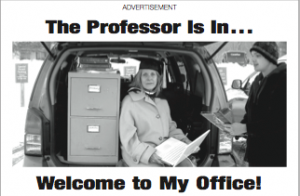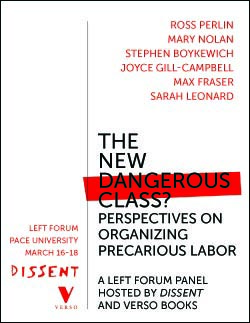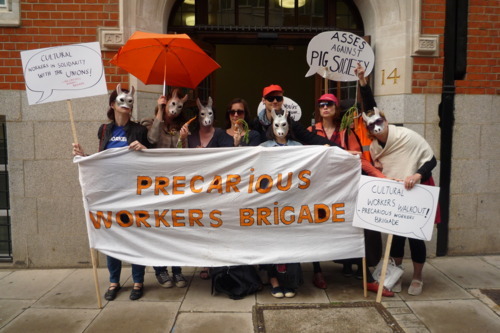
Among candidates in the "Naming Games" (a periodic event among adjunct/ NTT/ contingent faculty), precariat and variants on it keep come up more as the tanks of globalization roll through our cavalry lines. Back in 2002 when I was doing the Valencia AAUP Chapter newsletter and webpage, I fancied "precarious faculty" for its "call a spade a spade" directness. At that time, Canadian NTT faculty were called that as often as sessional. Every one working without a safety net.
Since then, the global precariat has grown, extended increasingly to "knowledge workers" of all stripes, and become a more widely identifiable term. It's back in the running. In the UK and NL, the
Precarious Workers Brigade brings together artists, designers, writers, teachers, "insecure" university lecturers, freelance web workers ~ knowledge workers in education and culture.
Whether or not a variant or some other terms catches on among us remains to be seen. Self naming of a large, diverse group is ultimate crowdsourcing. By definition, no individual, group, organization or even consortium of organizations controls the process. Making it stick later with the Department of Labor is yet another matter.
In the meantime, I'm exploring the precariat here and around the world, primarily but not exclusively, knowledge workers (go Gramsci!) to aggregate and curate sources. I added sites and alerts to the feed reader to bundle and widgetize, started a
Storify series (first entry below) and am also developing a "
Welcome to the Precariat" newspaper in
Paper.li.




















